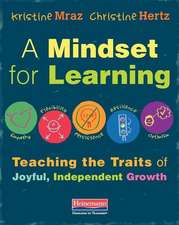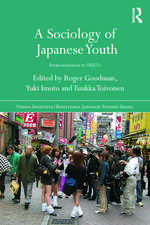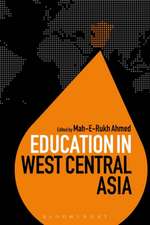Foreign Language Education in Japan: Exploring Qualitative Approaches: Critical New Literacies: The Praxis of English Language Teaching and Learning, cartea 3
Sachiko Horiguchi, Yuki Imoto, Gregory S. Pooleen Limba Engleză Paperback – 31 dec 2014
| Toate formatele și edițiile | Preț | Express |
|---|---|---|
| Paperback (1) | 324.51 lei 39-44 zile | |
| Brill – 31 dec 2014 | 324.51 lei 39-44 zile | |
| Hardback (1) | 572.58 lei 39-44 zile | |
| Brill – 31 dec 2014 | 572.58 lei 39-44 zile |
Preț: 324.51 lei
Nou
Puncte Express: 487
Preț estimativ în valută:
62.09€ • 65.18$ • 51.54£
62.09€ • 65.18$ • 51.54£
Carte tipărită la comandă
Livrare economică 07-12 aprilie
Preluare comenzi: 021 569.72.76
Specificații
ISBN-13: 9789463003230
ISBN-10: 9463003231
Pagini: 204
Dimensiuni: 156 x 234 x 11 mm
Greutate: 0.28 kg
Editura: Brill
Colecția Brill
Seria Critical New Literacies: The Praxis of English Language Teaching and Learning
ISBN-10: 9463003231
Pagini: 204
Dimensiuni: 156 x 234 x 11 mm
Greutate: 0.28 kg
Editura: Brill
Colecția Brill
Seria Critical New Literacies: The Praxis of English Language Teaching and Learning
Recenzii
“In the much-contested field of foreign language teaching in Japan, this book takes the reader directly to the places that really matter. With the help of expert guides in the fields of anthropology, sociology and linguistics, we are invited to join a vital discussion about the potentially revolutionary implications of the Japanese government’s policy of teaching Japanese citizens to not only passively engage with written English texts but to actually use English as a means of global communication.” —Robert Aspinall, PhD (Oxford), Professor, Faculty of Economics, Department of Social Systems, Shiga University, Japan
“This insightful book about language education involves different disciplines using ethnographic methods. Both ‘native’ and ‘non-native’speakers of Japanese (or English) collaboratively examine two different types of qualitative approaches in Japan—the positivistic and the processual. This is a must-have book for researchers and educators of language who are interested in not only Japan but also language education generally.” —Shinji Sato, PhD (Columbia), Director of the Japanese Language Program, Department of East Asian Studies, Princeton University, USA
“This insightful book about language education involves different disciplines using ethnographic methods. Both ‘native’ and ‘non-native’speakers of Japanese (or English) collaboratively examine two different types of qualitative approaches in Japan—the positivistic and the processual. This is a must-have book for researchers and educators of language who are interested in not only Japan but also language education generally.” —Shinji Sato, PhD (Columbia), Director of the Japanese Language Program, Department of East Asian Studies, Princeton University, USA

























